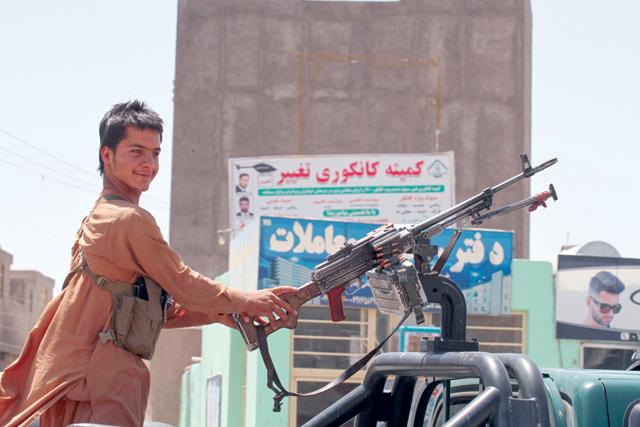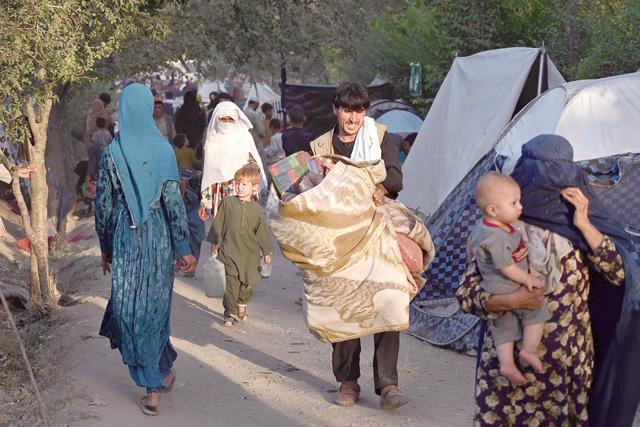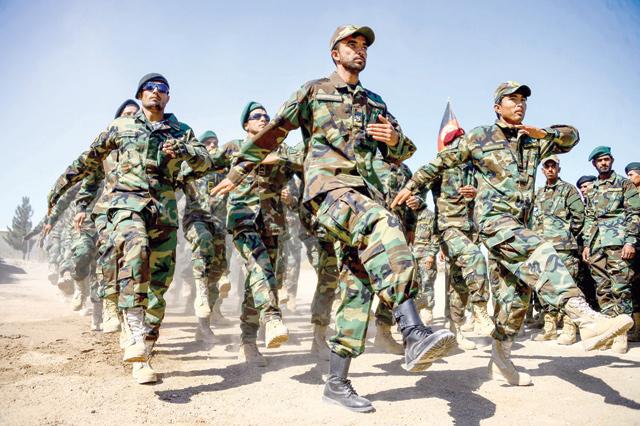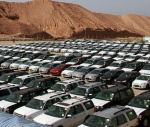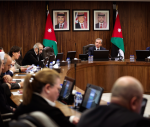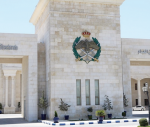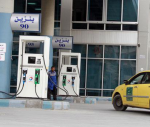You are here
Taliban press on with northern offensive after weekend blitz
By AFP - Aug 09,2021 - Last updated at Aug 09,2021
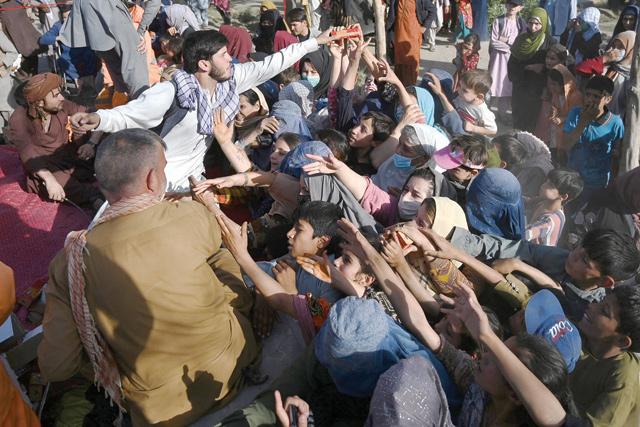
Internally displaced Afghan families fled from Kunduz and Takhar province due to battles between Taliban and Afghan security forces, collect food in Kabul on Monday (AFP photo)
MAZAR-I-SHARIF, Afghanistan — The Taliban seized a sixth Afghan provincial capital on Monday following a weekend blitz across the north that saw urban centres fall in quick succession and the government struggle to keep the militants at bay.
Insurgents entered Aibak without a fight after community elders pleaded with officials to spare the city from more violence following weeks of clashes on the outskirts, said Sefatullah Samangani, deputy governor of Samangan province.
"The governor accepted and withdrew all the forces from the city," Samangani added, saying the Taliban were now in "full control".
A Taliban spokesman confirmed the city had been taken.
The insurgents have overrun five provincial capitals across the north, sparking fears the government is rapidly losing control of the region.
They have also taken Zaranj, capital of Nimroz province, in the southwest.
Earlier Monday, the Taliban said they were moving in on Mazar-i-Sharif, the largest city in the north and a linchpin for the government's control of the region, after capturing Sheberghan to its west, and Kunduz and Taloqan to its east.
A spokesman said Taliban fighters had entered the city, but officials — and residents contacted by phone — said the group was exaggerating, with clashes confined to surrounding districts.
Anxiety and propaganda
"The enemy is trying to distort public opinion and create anxiety for the civilian population by their propaganda," said a statement from the provincial police force in Balkh, where Mazar-i-Sharif is the capital.
Mazar's longtime strongman Atta Mohammad Noor vowed to fight to the end, saying there would be "resistance until the last drop of my blood".
"I prefer dying in dignity than dying in despair," he tweeted.
The loss of the city, an economic hub steeped in history, would signal the collapse of Kabul's control of the north and raise questions about the future of the government.
In neighbouring Kunduz, the second-largest city in the north that fell to the Taliban Sunday, residents said insurgents were all over the city, occupying government offices and institutions.
Tolo News reported government forces still had control of the airport and army barracks outside the city, although there has been no official comment on the situation.
“The security situation is not good and we fled to save our lives,” Rahmatullah, a 28-year-old resident, told AFP.
“It is like a horror movie,” he added.
Thousands of people have fled the north, with many arriving in Kabul on Monday after a harrowing 10-hour drive through multiple Taliban checkpoints en route.
“The Taliban are beating and looting,” said Rahima, now camped out with hundreds of people at a park in the capital after fleeing Sheberghan province.
“If there is a young girl or a widow in a family, they forcibly take them. We fled to protect our honour.”
Tightened noose
As the Taliban tightened a noose around the north, Afghan forces were trying to flush out the insurgents from the outskirts of several cities in the south.
The Taliban have for weeks been trying to take Kandahar and Lashkar Gah , both with Pashtun majorities from where they draw their strength.
“We’re clearing houses, roads, and buildings that the Taliban occupy,” Gen. Sami Sadat, commander of the Afghan army’s 215 Corps, told AFP from Lashkar Gah.
The ministry of defence said hundreds of Taliban fighters had been killed or injured in the last 24 hours.
Both sides routinely exaggerate death tolls that are virtually impossible to verify.
Northern Afghanistan has long been considered an anti-Taliban stronghold that saw some of the stiffest resistance to their rule in the 1990s.
The region remains home to several militias and is also a fertile recruiting ground for the country’s armed forces.
Fighting in Afghanistan’s long-running conflict has escalated dramatically since May, when the US-led military coalition began the final stage of a withdrawal set to be completed before the end of the month.
The withdrawal of foreign forces is due to finish at the end of this month ahead of the 20th anniversary of the September 11 attacks. The US-led invasion sparked by 9/11 toppled the first Taliban regime in 2001.
Related Articles
KABUL/GENEVA — The Taliban were in control of six Afghan provincial capitals on Tuesday after a blitz across the north forced tens of thousa
MAZAR-I-SHARIF, Afghanistan — Afghan President Ashraf Ghani returned to the capital on Wednesday after a flying visit to the besieged northe
KABUL — The Taliban seized the stronghold of a notorious Afghan warlord on Saturday, officials said, the second provincial capital to fall t


